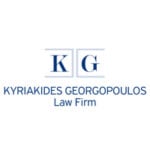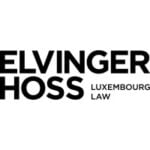-
Climate – the law governing operations that emit Greenhouse Gases (e.g. carbon trading) is addressed by Environment and Climate Change international guides, in respect of ESG: a. Is there any statutory duty to implement net zero business strategies; b. Is the use of carbon offsets to meet net zero or carbon neutral commitments regulated; c. Have there been any test cases brought against companies for undeliverable net zero strategies; d. Have there been any test cases brought against companies for their proportionate contribution to global levels of greenhouse gases (GHGs)?
-
Biodiversity – are new projects required to demonstrate biodiversity net gain to receive development consent?
-
Water – are companies required to report on water usage?
-
Forever chemicals – have there been any test cases brought against companies for product liability or pollution of the environment related to forever chemicals such as Perfluoroalkyl and Polyfluoroalkyl Substances (PFAS)?
-
Circularity – a. The law governing the waste hierarchy is addressed by the Environment international guide, in respect of ESG are any duties placed on producers, distributors or retailers of products to ensure levels of recycling and / or incorporate a proportionate amount of recycled materials in product construction? b. Are any duties placed on producers, distributors or retailers of products to handle the end-of-life of the products placed on the market?
-
Plastics – what laws are in place to deter and punish plastic pollution (e.g. producer responsibility, plastic tax or bans on certain plastic uses)?
-
Equality Diversity and Inclusion (EDI) – what legal obligations are placed on an employer to ensure equality, diversity and inclusion in the workplace?
-
Workplace welfare – the law governing health and safety at work is addressed in the Health and Safety international guide, in respect of ESG are there any legal duties on employers to treat employees fairly and with respect?
-
Living wage – the law governing employment rights is addressed in the Employment and Labour international guide, in respect of ESG is there a legal requirement to pay a wage that is high enough to maintain a normal standard of living?
-
Human rights in the supply chain – in relation to adverse impact on human rights or the environment in the supply chain: a. Are there any statutory duties to perform due diligence; b. Have there been any test cases brought against companies?
-
Responsibility for host communities, environment and indigenous populations – in relation to adverse impact on human rights or the environment in host communities: a. Are there any statutory duties to perform due diligence; b. Have there been any test cases brought against companies?
-
Have the Advertising authorities required any businesses to remove adverts for unsubstantiated sustainability claims?
-
Have the Competition and Markets authorities taken action, fined or prosecuted any businesses for unsubstantiated sustainability claims relating to products or services?
-
Have there been any test cases brought against businesses for unsubstantiated enterprise wide sustainability commitments?
-
Is there a statutory duty on directors to oversee environmental and social impacts?
-
Have there been any test cases brought against directors for presenting misleading information on environmental and social impact?
-
Are financial institutions and large or listed corporates required to report against sustainable investment criteria?
-
Is there a statutory responsibility on businesses to report on managing climate related financial risks?
-
Is there a statutory responsibility on businesses to report on energy consumption?
-
Is there a statutory responsibility on businesses to report on EDI and / or gender pay gaps?
-
Is there a statutory responsibility to report on modern day slavery in the supply chain?
-
Trends and developments – Where do you see the most significant legal developments in ESG in your jurisdiction in the next 12 months? Do you expect a rise in Court disputes or enforcement actions?
Singapore: Environmental, Social and Governance
This country-specific Q&A provides an overview of Environmental, Social and Governance laws and regulations applicable in Singapore.



















